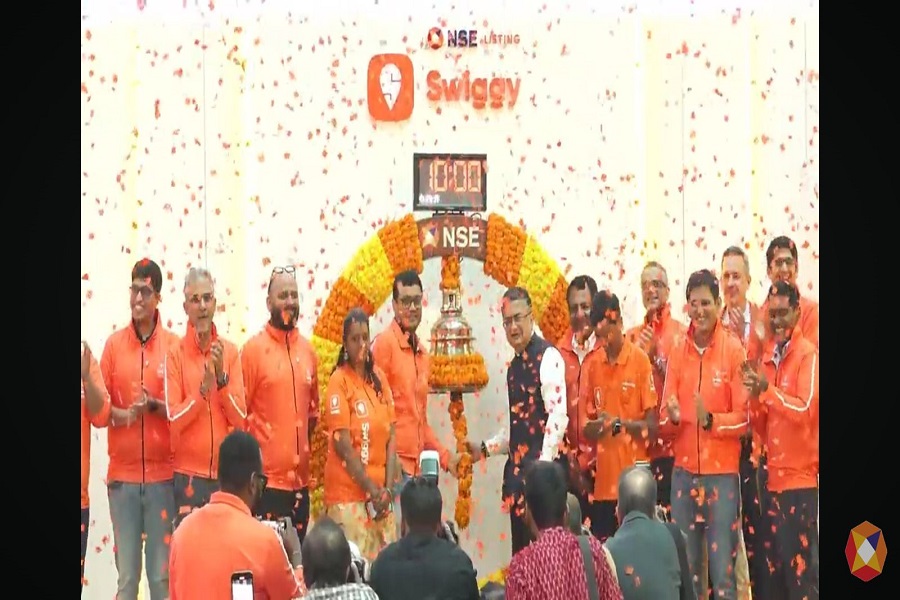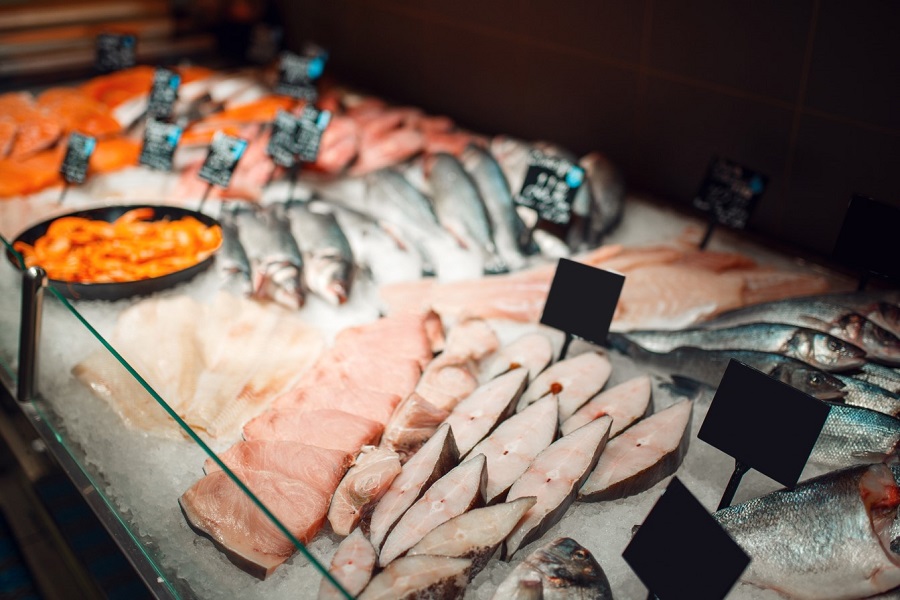Yasons Chemex Care coming with an IPO to raise Rs 20.57 crore

Yasons Chemex Care
- Yasons Chemex Care is coming out with an initial public offering (IPO) of 5,142,000 equity shares of face value of Rs 10 each for cash at a fixed price of Rs 40 per equity share.
- The issue will open for subscription on July 24, 2023 and will close on July 26, 2023.
- The shares will be listed on NSE Emerge.
- The share is priced 4.0 times higher to its face value of Rs 10.
- Book running lead manager to the issue is Fedex Securities.
- Compliance Officer for the issue is Himali Maheshbhai Thakka.
Profile of the company
Yasons Chemex Care is engaged in the business of importing and trading of dyes, chemicals and intermediates for textile & garment industry, water treatment industry, laminate industry agrochemicals, adhesives, metal industry among others. The company focuses on basic chemicals such as tobias acid, beta nephthol sulpho tobias acid, J acid, H acid, Bon acid, melamine etc. The company is a chemicals and dyes trading and distribution company with a diverse product portfolio. The company has two manufacturing facilities situated in the state of Gujarat.
The company is in the business of manufacturing of a) dyes and pigment paste; and b) FMCG products. Within dyes, it considers that it manufacture wide range of dyes such as reactive dyes, direct dyes, basic dyes, vat dyes and food colorants. The dyes manufactured by the company can be broadly classified under the following type (a) natural dyes, (b) synthetic dyes, and (c) synthetic organic dyes. The company manufactures multiple shades of dyes. The company also manufactures a wide range of pigment paste from various chemicals.
Within FMCG it manufactures or package products such as hair oil, perfumes & deodorant, handmade soap, sanitizer, etc., under its own brand name ‘PLXO’. It also trades in both dyes, pigment and pigments paste, which is primarily for meeting customer requirements. Some of its customers require a range of dyes or pigment paste besides the products it manufactures and sells. In these cases, it purchases the products, which are not manufactured by it and cater to the entire requirements of its customers. With its wide range of products, it offers colorsolutions directly or indirectly (trader) for various industries like textile, paper, paints, inks, soap, plastic, wood, detergents and FMCG.
Proceed is being used for:
- Meeting incremental working capital requirements
- General corporate purposes
Industry overview
Fast-moving consumer goods (FMCG) sector is India’s fourth-largest sector and has been expanding at a healthy rate over the years as a result of rising disposable income, a rising youth population and rising brand awareness among consumers. With household and personal care accounting for 50% of FMCG sales in India, the industry is an important contributor to India’s GDP.
The retail market in India is estimated to reach $1.1 trillion by 2020 from $840 billion in 2017, with modern trade expected to grow at 20-25% per annum, which is likely to boost revenue of FMCG companies. The FMCG market in India is expected to increase at a CAGR of 14.9% to reach $220 billion by 2025, from $110 billion in 2020. The Indian FMCG industry grew by 16% in CY21 a 9-year high, despite nationwide lockdowns, supported by consumption-led growth and value expansion from higher product prices, particularly for staples. The Indian processed food market is projected to expand to $470 billion by 2025, up from $263 billion in 2019-20.
Rural consumption has increased, led by a combination of increasing income and higher aspiration levels. There is an increased demand for branded products in rural India. On the other hand, with the share of unorganized market in the FMCG sector falling, the organized sector growth is expected to rise with increased level of brand consciousness, augmented by the growth in modern retail. Another major factor propelling the demand for food services in India is the growing youth population, primarily in urban regions. India has a large base of young consumers who form majority of the workforce and due to time constraints, barely get time for cooking.
Pros and strengths
Focus on Quality & Innovation: Dye and pigment paste products that it manufactures is inspected and tested at third-party laboratories before delivering to the customers. Thereafter, the customers also test sample of its products in their laboratory before taking the delivery. However, for FMCG products it has in house testing lab for qualities control of the product. It is improving the products qualities as per demand and samples provided by its customers. The company is dedicated towards quality of products, processes and inputs; it gets repetitive orders from its buyers, as it is capables of meeting their quality standards.
Diverse product offerings: The Company enjoys a wide product range for various industries and sectors. In addition to manufacturing of dyes and pigment paste, it also manufacture FMCG products such as hair oil, perfumes, handmade soap, sanitizer etc. for its own brand name ‘PLXO’ and for contract manufacturing for others. Under its dyes segment it manufactures wide range of dyes such as reactive dyes, direct dyes, basic dyes, vat dyes and food colorants. The dyes manufactured by the company can be broadly classified under the following type (a) natural dyes, (b) synthetic dyes and (c) synthetic organic dyes. The company manufactures over various shades and dyes. The company also manufactures wide range of organic and inorganic pigment paste. Its pigment paste range covers multiple color shades.
Locational Advantage: The manufacturing facility of the company is located at Vatva, Changodar and Dholka, Ahmedabad, Gujarat. It ensures that its manufacturing processes meet all environment, health and safety standards. The required skilled labour, raw material, technology, transportation, etc. for manufacturing are easily available due to extensive industrialization in the area. It locally procure chemicals and dye for manufacturing and mixing for its products. Its suppliers are having their facility / warehouses in close proximity to its manufacturing facility hence reducing the cost of transportation substantially without compromising on the quality of the raw material procured.
Risks and concerns
Depend on third parties for transportation: It does not have an in-house transportation facility and it relies on third party transportation and other logistic facilities at every stage of its business activity including for procurement of raw material from its suppliers and for transportation of its finished products to its customers. However, it has not entered into any definitive agreements with any third-party transport service providers and engage them on a need’s basis. Additionally, availability of transportation solutions in the markets it operates in is typically fragmented. The cost of its goods carried by such third-party transporters is typically much higher than the consideration paid for transportation, due to which it may be difficult for it to recover compensation for damaged, delayed or lost goods in case any accidental damage happens.
Working capital requirement: its business requires significant amount of working capital towards debtors, inventories and cash and cash equivalents. Its growing scale and expansion, if any, may result in increase in the quantum of current assets. Its inability to maintain sufficient cash flow, credit facility and other sourcing of funding, in a timely manner, or at all, to meet the requirement of working capital or pay out debts, could adversely affect its financial condition and result of its operations. Further, it has high outstanding amount due from its debtors, in case these debtors failed to pay its outstanding may result in a severe working capital shortage that may affect its business operations and financials.
Dependent on top ten suppliers: For the six months period ended on September 30, 2022 and for the financial year ended March 31, 2022, its top ten suppliers constitute approximately 57.08% and 26.48 % respectively of its cost of materials purchased. It depends on its top ten suppliers for the supply of its raw materials. Its business is significantly affected by the availability, cost and quality of materials and bought out items, which it needs to procure and provide for its products. The prices and supply of raw material depend on factors not under its control, including domestic and international general economic conditions, competition, availability of quality suppliers, production levels, transportation costs and import duties.
Outlook
Incorporated in 2017, the company is in the business of manufacturing of a) dyes and pigment paste; and b) FMCG products. Within dyes, it considers that it manufacture wide range of dyes such as reactive dyes, direct dyes, basic dyes, vat dyes and food colorants. The company manufactures multiple shades of dyes. The company also manufactures a wide range of pigment paste from various chemicals. On the concern side, it does not have an in-house transportation facility and it relies on third party transportation and other logistic facilities at every stage of its business activity including for procurement of raw material from its suppliers and for transportation of its finished products to its customers.
The company is coming out with an IPO of 5,142,000 equity shares of face value of Rs 10 each for cash at a fixed price of Rs 40 per equity share to mobilize Rs 20.57 crore. On performance, the revenue from operations increased by 40.95% to Rs 2,505.19 lakh for Fiscal 2022 from Rs 1,777.36 lakh for Fiscal 2021 due to increase in sale. Its revenue from manufacturing and trading increased during the period. Profit after tax increased by 55.90% to Rs 195.41 lakh for Fiscal 2022 from Rs 125.35 lakh for Fiscal 2021. Going forward, the company’s vision is to grow in existing and new markets by providing quality products and backward integration of manufacturing dye and pigment paste and FMCG products. It intends to grow and capitalize on the growing demand for its products in India.
























